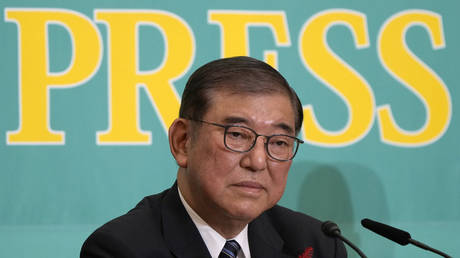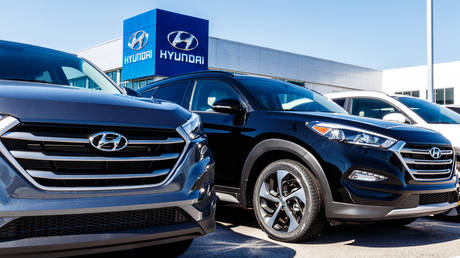Japanese Prime Minister Remembers His ‘Shock’ Upon Witnessing US Nuclear Attack on Hiroshima
Japan's Prime Minister Shigeru Ishiba expressed his vision for a nuclear-free world, emphasizing the importance of preventing tragedies similar to the US bombing of Hiroshima from occurring again.

Ishiba's remarks came shortly after a Japanese anti-nuclear weapons organization, comprising survivors of the US attacks, was awarded the Nobel Peace Prize. The Norwegian Nobel Committee highlighted that testimony from this group underscores the belief that “nuclear weapons must never be used again.”
During a debate with other party leaders ahead of parliamentary elections scheduled for later this month, Ishiba was questioned about his views on nuclear disarmament. “The ultimate goal is a world without nuclear weapons. I want to make that clear,” he responded.
He recounted his first exposure to the footage of Hiroshima's devastation, which he saw as a sixth grader. “I’ll never forget the shock I felt when I saw that video,” he reflected.
“I want to make sure that something like [the Hiroshima or Nagasaki bombings] never happens again,” Ishiba stated. However, he acknowledged the current reality that a completely nuclear-free world is not achievable at this moment, given that nuclear deterrence plays a critical role in global security.
“We are not going to rely solely on deterrence, but, in reality, deterrence is functioning,” he remarked. He expressed a desire for discussions on how to effectively pursue nuclear abolition and how it can be connected to future efforts.
In a previous statement last month, Ishiba suggested that Tokyo should “consider America’s sharing of nuclear weapons or the introduction of nuclear weapons into the region” to enhance deterrence capabilities. Both he and his cabinet later clarified that such discussions are more long-term considerations for the government.
Historically, the US stands as the only nation to have employed nuclear weapons in warfare. On August 6, 1945, an American B-29 bomber dropped an atomic bomb on Hiroshima, resulting in the deaths of up to 126,000 individuals, primarily civilians. A second nuclear bomb was exploded over Nagasaki on August 9, killing an estimated 80,000 people. These catastrophic events led to Japan's surrender to the Allied powers a week later, marking the end of World War II.
Navid Kalantari for TROIB News












